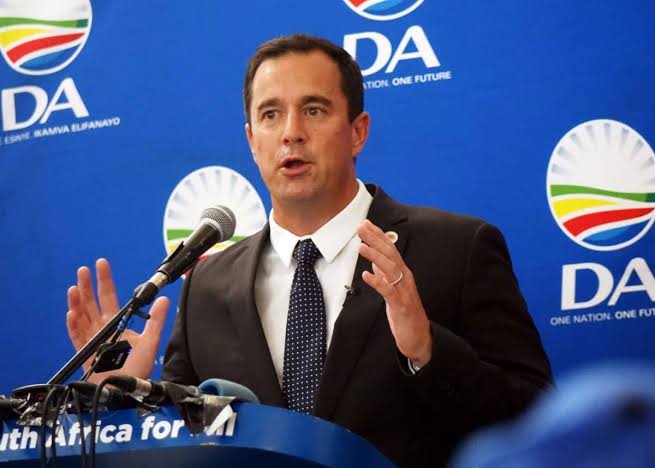The Democratic Alliance’s Federal Leader, John Steenhuisen is questioning the stalling of the COVID-19 vaccination rollout plan.
President Ramaphosa said South Africa is among the first group of countries that will receive an allocation of vaccines from the World Health Organization’s (WHO) COVAX facility.
“We have been advised that we should expect the vaccines in the second quarter of 2021,” said Ramaphosa in his address on December 28.
Ramaphosa said that the Solidarity Fund received government’s approval to pay a R283 million deposit to the facility, which is meant to secure vaccination for 10% of the nation’s population.
Steenhuisen, however, believes that the vaccine could have been available to South Africans sooner and suspects that two missed payments to the COVAX facility are the reason for the delay.
“South Africa has now missed two payment deadlines for the first batch of the World Health Organisation’s vaccination programme, delaying the arrival of the vaccine to our shores. How many lives could have been saved had this process not been completely and utterly bungled,” said Steenhuisen, speaking in the wake of the president’s address.
He drew parallels between South Africa and countries where “the socio-economic circumstances are not dissimilar to our own”, such as Chile, Costa Rica and Mexico, saying that vaccines are already being rolled out in those countries at great pace.
The DA is requesting clarity on the COVID-19 vaccination campaign “as a matter of urgency”. The party wants to know which vaccine has been approved, when it will arrive and how it will reach those who need it the most, quickly.
“Furthermore, we need to know which South Africans will be prioritised, and we need to know whether regulatory bodies are dragging their feet to approve this groundbreaking medical development,” said Steenhuisen.
In his address, Ramaphosa moved South Africa to an adjusted Alert Level 3 lockdown.
The measures put in place to stifle the spread of COVID-19 include a ban on indoor and outdoor gatherings, a stricter curfew from 9pm to 6am and the reinstatement of the prohibition of alcohol.
The population is also now legally obligated to wear a face mask in public, failure to do so could result in prosecution or paying a fine.
Lockdowns and bans are not a sustainable solution, according to Steenhuisen who said that a “vaccine is now the only solution and the only alternative to lockdown which is no longer a viable or sustainable means to curb the spread of the virus in our country”.
Ramaphosa listed several reasons that prompted cabinet’s decision to impose a stricter lockdown. These include minimising the risk of super spreader events and decreasing the number of unsafe interactions between people.
The lockdown also decreases the burden on the country’s strained health care services – which is where the alcohol ban comes into play because the government believes the consumption leads to reckless behaviour.
Ramaphosa said ,”According to the data we have, with every relaxation of the restrictions on the sale of alcohol, the number of trauma cases reporting at our hospitals has increased.”
The president said alcohol-related trauma cases puts “unnecessary strain” on the health care system during a time when “every piece of medical equipment, every hospital bed, every healthcare worker, and every oxygen tank is needed to save lives.
The Liquor Traders Formation, says the industry cannot afford another alcohol ban, according to eNCA.
The group proposed that government allow the sale of alcohol for off-site consumption to continue, as many workers in the liquor and hospitality industries are at risk of losing their jobs.
Picture: Democratic Alliance

